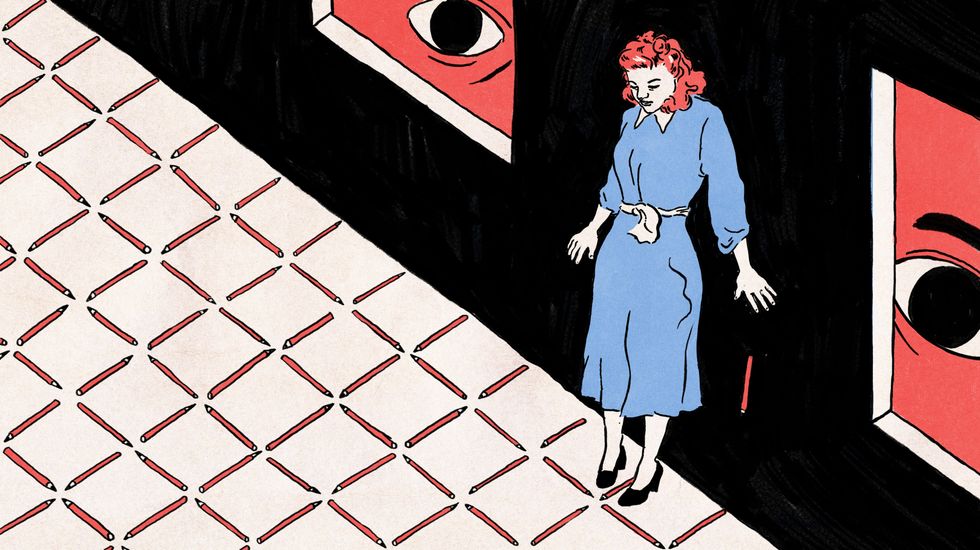Obsessive-Compulsive disorder, better known as OCD, is known as one of the most debilitating disorders known today. When broken down, there are obsessions- uncontrollable thoughts, which are usually consider unreasonable, and there are compulsions- these are the acts used to keep a persons obsessions at bay. In order for someone to have OCD, it must be persistent and create conflicts within their daily functioning. Imagine this: You are trying to get some studying done, but every time you sit your pen down or flip the page, you have a fear of germ contamination. So, in order to keep those thoughts out, you get up every 5 minutes to flip the light switch on and off. A normal study session that would only take you a few hours, soon turns into a day of fighting off urges and contaminated thoughts. Approximately 4,000 students at the University of Alabama are battling in silence with this disorder. So, this brings me to the point that so many other students and faculty do not understand the severity of OCD. How many times have you heard someone say they are OCD because they like order, matching, or triple even quadruple check something? In actuality, most of those are all just signs of perfectionism, not OCD. It really makes me wonder how the people actually suffering feel, when they hear others making jokes or inaccurate statements about the disorder. With all of that said, maybe it is time that we crush these myths and offer support for those who suffer in silence.
1) OCD is not all about being a so called "germaphobe." While it is true many of those with the disorder have connections with cleaning, it is more about the consistent fear of germs and the compulsion is acted out though cleaning.
2) Many believe that those with OCD, live contently and the compulsions automatically alleviate their pain, but the truth is that these compulsions are not enjoyable to them. The only reason they continue their rituals is to help prevent pain staking anxiety.
3) Some think that it would be easy to spot someone with OCD, but like I mentioned previously, they usually suffer in silence. Many of those with the disorder have no physical symptoms, but rather simmer it all in their head.
4) People tend to believe that they can just stop their "quirks." It would be easy to tell someone to stop counting, washing their hands, calm down, or get a reality check. It is never that easy, because these compulsions are their livelihood in order to try and function in everyday life the best they can.
Since we have officially discussed common myths about those battling, let's discuss what we can do to provide support for those suffering. Approximately 1 in 10 people are diagnosed with OCD, so think into your inner circle of friends, you probably know one or two people that have this disorder. Let me say though, I am not recommending for you to self diagnose one of your friends or family members. This support portion is just meant to be directed towards those who have confided in you about their suffering.
1) Help to guide them to finding the appropriate care they need. In order for them to begin their healing, they must be provided a third-party method of support and treatment.
2) Help to create a positive and supportive climate around them. Try not to make them feel alienated from your life, because of their behaviors or thoughts, although this does not mean enabling the rituals because that can make it worse. Let them know that you appreciate them and that we will be there to provide them support.
3) Get help for yourself. Sometimes when loved ones or close friends of someone is suffering can create pain for you. It is important to take care of you, so you can ensure your loved is getting the support they need, which you cannot do if you feel burned out or hurting.
4) Do not let them give up. It can be a hard and difficult road for them, but let them know how good this will be for them and how strong they are.
5) Remember that relapses happen, but help to remind them that they did it once, so they can do it again. They are stronger than they realize.
I know that it can be a difficult and hard time to support one with OCD, but take it one step at a time and be there for them. This is a debilitating disease not just for those suffering but also those in close proximity to it.
Now that we have addressed many of the factors playing into OCD, I hope y'all are able to take pieces of this with you whenever you encounter one of these myths or a close friends that is suffering. Remember how real this is for those fighting this debilitating disorder. So, let's take this knowledge and help to provide better support and education to others.



 Photo by
Photo by  Photo by
Photo by  Photo by
Photo by 



















